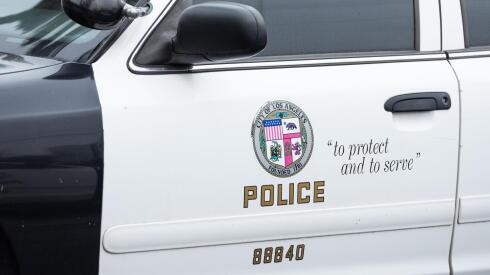Latest News
Construction regulations have evolved through a rigorous process guided by professional expertise. But safety and housing affordability shouldn’t be seen as competing goals.
A pending U.S. Supreme Court decision on the Voting Rights Act could weaken protections for minority voters.
The Bloomberg Philanthropies award will fund up to 300 apartments, with city officials expecting sharply lower utility costs for residents.
With the number of residents over 65 growing four times faster than the rest of the population, legislators are advancing more than 20 bills and a long-term plan to reshape aging services.
A traffic signal prioritization product developed for the city of San Jose has made buses 20 percent faster. The city has turned to Silicon Valley tech companies for a range of needs.
For public officials who support equal opportunity, recent court rulings and other developments provide reasons for a little optimism.
State lawmakers pursue homeowner tax cuts, but counties, schools and towns face shortfalls.
Lawmakers in some Republican-controlled states face resistance from business groups that say strict verification could cripple key industries.
Just over 10,000 residents signed up as federal subsidy cuts and rising premiums reshape the state’s insurance marketplace.
Whether it’s political polarization, ruthless social media or federal interference, this is a particularly tough time to be in elected office in a city or a state.
Lawmakers in at least eight states are proposing bans or tighter limits as garnishment hits thousands of patients each year and federal protections recede.
State education data shows that nearly 30,000 students made learning gains last year, reinforcing lawmakers’ push for sustained funding.
President Donald Trump gave the longest State of the Union speech in history Tuesday night. It emphasized the administration’s work on affordability issues as polls suggest most Americans are dissatisfied with his handling of the economy.
It doesn’t look good for the GOP, but these intermittent elections are far from perfect barometers of public opinion.
The county GOP decided to break from a jointly administered primary with Democrats. As a result, voters must publicly identify their party inside voting centers.
State investments lifted scores overall, but stark gaps remain between affluent and struggling districts.
For a few of them, particularly ambitious Democrats, the answer is yes.
State and local governments have been issuing record amounts of debt, mostly to maintain and expand infrastructure. Will the surge continue?
Compounds far more potent than fentanyl are emerging faster than ever. State and local overdose tracking systems should be built to detect them.
Lottery officials say digital sales would boost funding for parks and wildlife, but lawmakers fear a shift toward casino-style gaming.
The English-only requirement follows decades of debate in a region where many households speak Spanish and multilingual voting remains protected.
Oregon Attorney General Dan Rayfield led a 12-state lawsuit against the Trump administration’s tariff policy. The Supreme Court ruled with the states on Friday.
Deputy Chief Alan Hamilton says an unusually low number of homicides, a departmental reorganization that sped up investigations and community relationships all contributed.
We need to reward outcomes that enhance community safety. The place to start is with the way we staff our prisons.
A revived pilot program sends clinicians and paramedics to residents’ homes to reduce repeat 911 calls and connect vulnerable people with ongoing care.
At least eight states now require insurers to cover alternatives without higher co-pays or extra hurdles.
We make it too hard for immigrants with substantial education and professional experience gained in other countries to work here at their skill level, filling critical labor shortages. We should evaluate competence in a rigorous yet realistic way.
Updating outdated titling laws may expand low-cost financing for one of the nation’s most affordable housing types.
A state initiative launched less than 18 months ago has relieved more than 500,000 residents, eliminating an average of $1,200 per person.
State officials pitched robotic ultrasounds to help rural areas with no OB-GYNs, but clinicians say technology can’t replace trained providers.
Sponsored
-
Sponsored
Most Read

















































